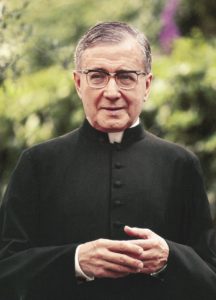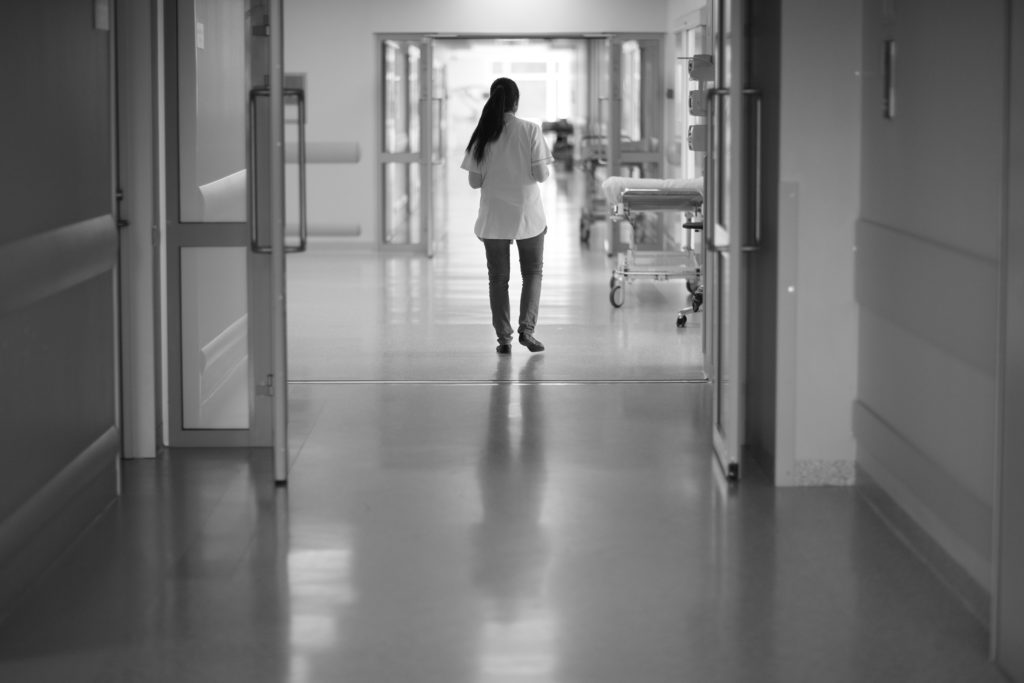If there is one thing written into the reality of our human experience, it is the necessity for work.
On this earth, if man is to have a shelter, he’ll have to put up a roof. If he’s to eat, he’ll have to farm or hunt. If he doesn’t want to freeze, he’ll have to build a fire. There is no living without sweating, no existence without effort. This is actually an excellent thing because it’s hard to imagine anything more spiritually and morally unhealthy than an idle life, or one devoted to the pursuit of pleasure. We are not built for that, but for the satisfaction of pulling order out of chaos, and of seeing our plans give fruit.
We can overwork, however, and that can have disastrous consequences.
When my third child was 11 months old, I had a nervous breakdown. One early morning I went to work at the small community hospital where I was a radiologist. I had left my chubby baby in his sleep-damp pajamas sitting in the highchair, deliciously babbling and laughing. The kindergartner and the preschooler were cheerfully eating their cereal, half-dressed and uncombed. Trading that bright kitchen for my lonely dark room in the cold hospital with its nauseating smell of disinfectant was too much for me. I put my head on my desk and wept.
I cried for days after that, entirely at sea about the arrangements of my life.
I had decided early on to be a doctor, filled with enthusiasm for what I believe is one of the noblest of vocations. But I married a fellow student in my third year of medical school and our first baby was born nine months later. I went straight into residency, choosing radiology for its relatively easy training period. It might have been easy, if I didn’t have a baby and then another. Our third was born during my last year and I went straight to work at a hospital as soon as I was done. I aimed to “have it all.”
I was miserable at the hospital. All those years of study and extreme effort, the longing for the children, which was always paining me, all to end up sitting in front of a computer interpreting images and speaking into a recorder nine hours a day. I have to confess, with shame, that I was horrid to those around me — short-tempered, impatient, quick to complain and criticize. I kept up my professionalism as far as my patients and my radiology work, but I was bitter and made my poor co-workers pay for it.
It was during that time that a friend invited me to an Opus Dei retreat. She had given me a prayer card of its founder, St. Josemaría Escrivá, which described Opus Dei as a “way of sanctification in daily work and in the fulfillment of the Christian’s ordinary duties.” You can see why I was drawn to “the Work.”
There I was, walking a dark path in which my ordinary duties were taking me straight to hell, not heaven. I knew I was all wrong, and here was hope — that I could learn to be a light to others, even in difficult circumstances, and that my work, if not pleasant in itself, could be made beautiful by being offered to God as a prayer.

I found great comfort in my new hope and I persevered, helped on by lovely quotes like this one from the saint: “The work of each one of us, the activities that take up our time and energy, must be an offering worthy of our Creator. It must be operatio Dei, a work of God that is done for God: in short, a task that is complete and faultless.” And: “Professional work is also an apostolate, an opportunity to give ourselves to others, to reveal Christ to them and lead to God the Father.” My attitude improved and I found strength to be cheerful and patient.
However, I could not salvage a situation which was inherently unbalanced. I was needlessly neglecting my family, in short, and much of my unhappiness was born of guilt and from a constant yearning to be with them.
After a few days of weeping I put in my resignation, with the full support of my husband. Perhaps it didn’t make much sense from a purely material perspective, but it made perfect sense in every other way. I entered the prettiest time of my life, so far, treasuring every moment with my children because of all the moments I had missed. And we went on to have two more that would not have been ours if I had stayed at the hospital.
Later on, I went back to work part-time, and from home. I’ve been very fortunate to find professional fulfillment and also to live fully the joy of home, children, and husband. I thank God for this. I also thank him for the hard lessons I learned, and even for my nervous breakdown. The real work of sanctification is being done all the time by him, of course. We just have to be attentive, pray, and follow where he leads.

